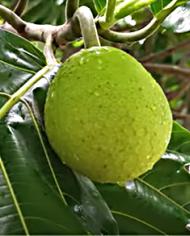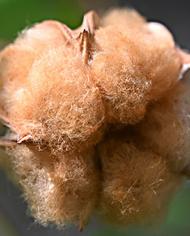ARS researchers and their partners released a promising new Vignoles variety for U.S. wine grape growers.
Tellus Articles
ARS research provides valuable insight for ranchers and beef producers to deliver tender cuts of beef to consumers.
ARS researchers are testing a new biocontrol agent against the vastly spreading flowering rush plant.
ARS researchers are developing a phone app for beekeepers to quickly and accurately identify honey bee diseases.
ARS researchers are studying the endangered Franklin’s bumble bee with an eye toward conservation efforts for other pollinators.
ARS researchers in East Lansing, MI in collaboration with Michigan State University, developed a new dual-arm harvesting robot to enhance fruit harvest efficiency and cost effectiveness. The new robot demonstrated up to a 34% improvement in harvesting efficiency, compared to the single-arm robot, with great potential for further performance enhancement.
Harvesting labor is the single largest cost in production of apples and other tree fruits. This new robot design provides a commercially viable solution to automated harvesting of apples, which is critical to the long-term sustainability and global competitiveness of the U.S. apple industry.
Responding to growing demand from America’s almond growers, ARS developed a new almond cultivar that will help growers reduce costs and improve efficiency when managing their orchards.
Using surface water irrigation can help Arkansas farmers maximize their profits while also providing groundwater recovery and long-term availability for groundwater in the region.
To help farmers continue growing the beloved food staple, ARS scientists explored how to breed potatoes resistant to two major diseases.
A team of researchers from the Agricultural Research Service (ARS) at the National Laboratory for Agriculture and the Environment in Ames, IA, is collaborating with the University of Illinois to protect this cherished fall crop from emerging threats and help farmers maintain production.
In this video, USDA researchers explain how early-life nutrition, physical activity, and research-backed strategies can help families and communities support childhood health from the start
ARS is one of the most successful federal agencies in bringing consumers the results of research.
ARS researchers found that growing certain types of rice and fish together could provide economic and production benefits for American rice farmers
Healthy rangelands are essential for ensuring grazing and forage productivity, reducing wind erosion and wildfire risks, and supporting wildlife ecosystems.
Common crupina threatens “First Food” growth on tribal lands
ARS researchers are studying the great potential of the multifaceted grain Kernza
U.S. agriculture could save billions by targeting invasive weeds with biological control agents
This video shares research from USDA scientists who are studying the connection between diet, gut health, and chronic abdominal pain in kids.
ARS researchers are mapping the genome of the passionflower bee in order to help protect bee diversity.
ARS aims to make Popping Beans a tasty snack that is both protein-rich and gluten-free
ARS scientists on the campus of Tufts University at the Jean Mayer Human Nutrition Research Center on Aging found that a low intake of powerhouse Vitamin K has the potential to reduce cognition and alter several types of nerve cells.
Native microbes provide the key to healthier pollinators and better harvests
ARS scientists develop monitoring system to support farmers in their effort to protect the Chesapeake Bay
Researchers team up to battle peanut smut before it reaches American farms
Five-year cover crop study showed greater yields and improved root microbiomes for some plants
Aquaponic systems may help sweetpotato industry and feed ‘urban deserts.’
ARS researchers in Boise, ID, are studying prescribed fires in western juniper type landscapes to better understand how this land management tool affects the hydrology, habitat, and overall ecosystem of this land type.
Researchers bring rosette weevil to bear on yellow star thistle.
Scientists develop new sorghum lines to help cash crops from nematode attacks.
Agricultural Research Service (ARS) researchers are helping Americans offset chronic health diseases and the debilitating effects of obesity, which can cost up to $4.5 trillion in annual health care expenditures.
ARS Researchers search for solutions to X-disease, devastating the U.S. sweet cherry industry.
Researchers adopt on-site plotting and multi-spectral sensors to gather new data
ARS researchers aim to curb the spread of invasive pests and plants through Area-Wide Pest Management
ARS researchers have made a new discovery that could benefit the U.S. catfish industry.
ARS’s world class nutrition research is helping Americans live longer, healthier lives.
ARS researchers study the effectiveness of nematodes in reducing a major soybean foe.
A tiny wasp is turning out to be an important ally for one of America’s biggest crops.
ARS researchers are studying the potential benefits of reversing soil erosion on hilly lands
Long-term project returns thriving cacao industry to Puerto Rico
ARS researchers found great value and benefits when intercropping oat with pea plants
New project invites researchers to take treatments from the lab to the field.
Scientists discovered that bees and hoverflies collect pollen from centipedegrass flower heads.
Breadfruit is a popular fruit in the Caribbean and gaining interest worldwide.
ARS researchers are exploring food insecurity among Asian and Hispanic Americans.
ARS scientists are working with hemp plant seeds in an effort to unlock this plant's amazing nutritional benefits.
Researchers are using breeding and genetics to tackle problems faced by barley and oat growers.
ARS scientists are studying the flame resistance of naturally colored cotton.
Disease-carrying pests cost the world billions.
Natural pathogen may arrest the pest’s hold on crop fields




















































